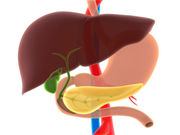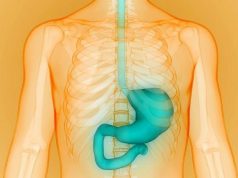30 percent reduction in 30-day mortality for patients with cirrhosis, upper gastrointestinal bleeding
MONDAY, Oct. 31, 2016 (HealthDay News) — Timely administration of antibiotics is associated with a reduction in mortality among patients with cirrhosis and upper gastrointestinal bleeding (UGIB), according to a study published in the November issue of Clinical Gastroenterology and Hepatology.
Andrew M. Moon, M.D., M.P.H., from the University of Washington in Seattle, and colleagues conducted a retrospective study involving 6,451 patients with cirrhosis in the Veterans Affairs health care system hospitalized for UGIB (8,655 hospitalizations).
The researchers found that timely administration of antibiotics (defined as receipt from eight hours before admission through 48 hours afterward) occurred during 48.6 percent of admissions, with an increase from 30.6 percent in 2005 to 58.1 percent in 2013. Ascites, high model for end-stage liver disease score, esophageal variceal hemorrhage, and administration of octreotide or intravenous proton-pump inhibitors were independent predictors of antibiotic receipt. Black race and nonalcoholic fatty liver disease were associated with decreased odds of antibiotic provision. There was a correlation for timely administration of antibiotics with reduced 30-day mortality rate in multivariate analysis (adjusted odds ratio, 0.70).
“In a study of patients with cirrhosis and UGIB in the VA health care system, timely administration of antibiotics was associated with a 30 percent reduction in 30-day mortality,” the authors write. “Targeted efforts are needed to promote the appropriate use of antibiotics among patients with cirrhosis and UGIB.”
Full Text (subscription or payment may be required)
Copyright © 2016 HealthDay. All rights reserved.








